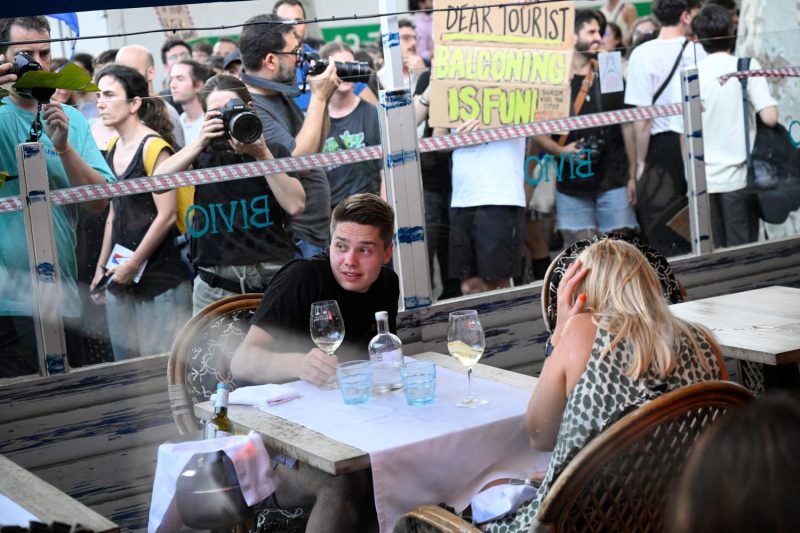
Chaos in Barcelona as Protesters Target Tourists with Water and Insults
Barcelona Protesters: Understanding the Tensions Between Locals and Tourists
The recent protests in Barcelona, where demonstrators threw items and sprayed travelers with water while shouting Tourists Go Home, shed light on the increasingly complex relationship between locals and tourists in popular travel destinations. This incident serves as a stark reminder of the underlying tensions that exist in cities grappling with issues of over-tourism, gentrification, and cultural preservation.
At the heart of the Barcelona protests is the phenomenon of over-tourism, where the influx of tourists into a city exceeds its carrying capacity. Barcelona, with its stunning architecture, vibrant culture, and beautiful coastline, has long been a magnet for travelers from around the world. However, this popularity has come at a cost to the local residents, who often feel marginalized and displaced in their own city.
The protesters’ frustration is fueled by the perception that tourism is transforming their city into a playground for foreigners, driving up housing prices, overcrowding public spaces, and eroding the authenticity of local neighborhoods. Many residents feel that they are being pushed out of their own communities to make way for tourist accommodations, souvenir shops, and trendy cafes.
While tourism brings economic benefits to Barcelona, with thousands of jobs dependent on the industry, the protesters argue that these gains come at too high a social and environmental cost. They demand greater regulation of tourism, more sustainable development practices, and a recentering of the city’s priorities to serve the needs and interests of its residents.
The conflict between locals and tourists in Barcelona is further exacerbated by cultural misunderstandings and clashes of expectation. Visitors often come to the city seeking an idealized version of Barcelona, one that is perpetuated by glossy travel brochures and Instagram posts. However, the reality on the ground is far more complex, with residents grappling with issues of affordable housing, job insecurity, and social inequality.
By engaging in confrontational tactics such as throwing items and shouting at tourists, the protesters are drawing attention to their plight and calling for a reevaluation of the city’s approach to tourism management. While such actions may be controversial and divisive, they serve as a wake-up call to policymakers and industry stakeholders to address the root causes of discontent and work towards a more sustainable and inclusive model of tourism.
In conclusion, the Barcelona protests offer a poignant reminder of the challenges that arise when tourism growth is not accompanied by careful planning, community engagement, and respect for local cultures. Moving forward, it is essential for Barcelona and other popular travel destinations to strike a delicate balance between economic development and social well-being, ensuring that the benefits of tourism are shared equitably among all stakeholders. Only through open dialogue, collaboration, and a commitment to mutual understanding can Barcelona truly become a city that welcomes both visitors and residents alike.
